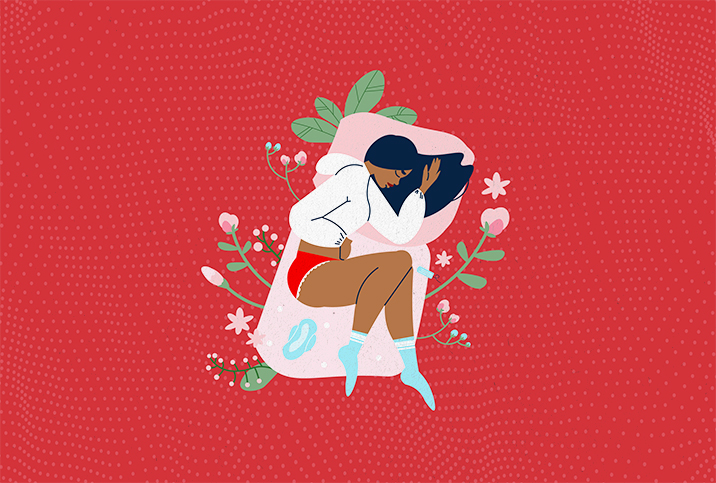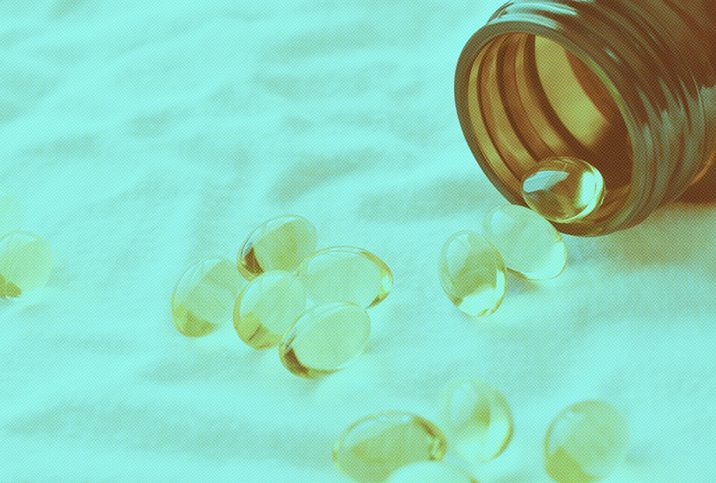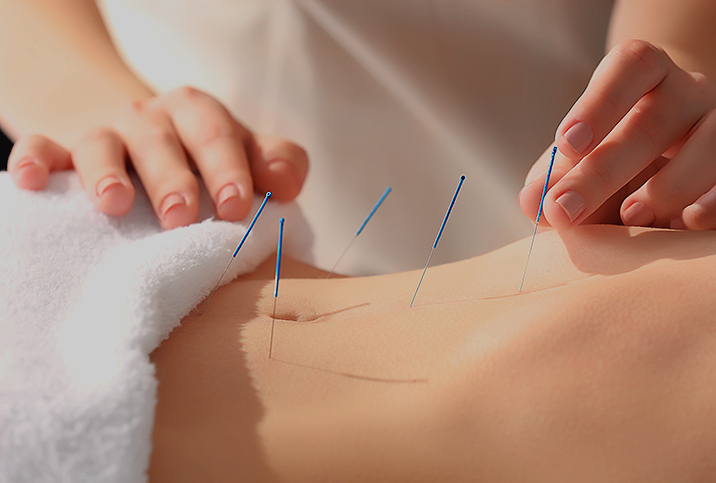Magnesium Supplements for Menstrual Cramps

If you experience painful menstrual cramps in your lower abdomen, there are a few natural and medicinal remedies that can help. You can try a heating pad or Advil to relieve the pain. Additionally, some doctors recommend taking magnesium supplements, which may work like a muscle relaxant.
"Magnesium is a natural salt that can help muscles relax," said Catha Fischer, M.D., director of fertility preservation at Spring Fertility in New York City. "Your uterus is a muscle, and this can be an effective strategy to decrease discomfort from uterine cramping."
Menstrual cramping occurs when the uterine muscles contract and there is a short period of time when the blood flow to the uterus is cut off.
"This lack of blood flow leads to an accumulation of anaerobic metabolites that stimulate pain receptors," said Kolbe Hancock, M.D., an OB-GYN and fertility specialist with Spring Fertility. She added that the circumstances are similar to when you hold a squat and feel pain in your thighs from muscle contractions.
Cramping can also occur during your period when changing levels of prostaglandins, a type of hormone, cause contractions and constriction of blood flow to the uterus. Hancock said magnesium relaxes blood vessels and reduces prostaglandins, which could help ease pain from uterine menstrual contractions.
However, keep in mind the important aspects of efficacy and risk factors before you reach for a bottle of magnesium supplements.
Are magnesium supplements effective?
Studies indicate that women experiencing dysmenorrhea (pain during menstruation) have decreased magnesium levels, which is why magnesium is considered a potential option for prevention and treatment of menstrual cramps. Hancock warned, however, that there aren't enough studies yet to prove its efficacy.
"Most of the studies done were very small, and different studies showed completely opposite results," she explained. "To further complicate this, the studies that have been done vary widely in the dosage and formulations investigated."
In a 2010 study of 150 women, for example, those who received magnesium supplements reported reduced PMS symptoms, and those who were given both magnesium and vitamin B6 supplements reported even greater relief. It's important to note, however, that the third group of women, the placebo group that did not receive either supplement, also reported a decrease in symptoms, though to a lesser degree than the other two groups.
Health benefits of magnesium
Magnesium is considered one of the essential "macrominerals" the human body needs to stay healthy. It's a cofactor in many biochemical pathways and processes, such as regulating muscle and nerve function, blood sugar levels and blood pressure, and making protein, bone and DNA, according to the National Institutes of Health (NIH).
"It plays a role in our nervous system and can decrease cortisol release, which in turn can reduce stress," Fischer said. "Magnesium plays a role in our insulin pathways, so for those who have insulin resistance and/or PCOS [polycystic ovary syndrome], it may help lower these levels. Research on this is wishy-washy, though, but [supplementation] is not harmful in appropriate doses."
The average recommended daily dose of magnesium varies by age, sex and other factors. The NIH recommends 310 to 320 milligrams (mg) for adult women and 360 mg for girls 14 to 18 years old. Pregnant women need 350 to 360 mg, while those who are breastfeeding need 310 to 320 mg.
Risks of overdosing on magnesium
Before taking magnesium, you should discuss your medical history with your doctor.
"People with diabetes, certain gastrointestinal diseases, heart disease and renal disease should speak to their physician before supplementing with any type of magnesium," Hancock advised.
Overdosing on magnesium, even in a healthy person, can be dangerous. It can cause nausea, diarrhea, lethargy, low blood pressure and muscle weakness. At very high levels, magnesium can lead to cardiac arrest.
Natural ways to boost magnesium
Magnesium is a naturally occurring mineral in many foods. Unlike the risk from supplements, magnesium in food and beverages is not harmful and does not need to be limited, according to the NIH.
Because of its many health benefits in general, as well as its possible effect on uterine menstrual cramps, doctors recommend adding foods to your diet that contain magnesium. These include chocolate, nuts, spinach, squash, pumpkin seeds, lima beans and tuna.
"Yes, really, a doctor is telling you to eat daily chocolate," Fischer confirmed. "It's for your health!"
Hancock added that it's important, especially around the time of your period, to make sure you get enough iron to combat anemia from blood loss.
"Lastly, check your daily women's multivitamin—many formulations already have a little boost of magnesium and iron," Hancock concluded.


















